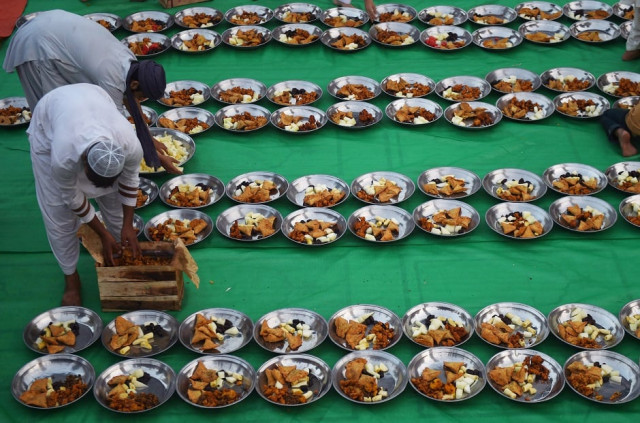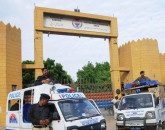First time fasting: Ensure children get balanced diet while fasting
Children should fast gradually starting with 6 hours and increasing progressively

PHOTO: AFP
The medical community is unanimous that children should not be 'forced' to fast but should instead be prepared by their parents gradually and eased into the process of fasting. If children are forced to fast while feeling medically unfit they may suffer serious health consequences.
"Once a child reaches the age of puberty, he or she must observe fast, which is one of the five pillars of Islam. Parents should start preparing and educating their children early so that it will be easier for them to fast during Ramazan," said Dr Hilal Al Rashdi.
He further added that parents should also reward and praise their children when they observe fast.
Echoing similar views, Ministry of Health, Senior Consultant in Family Medicine Dr Ahmed Hamed Al Wahaibi said that parents should prepare their children at an early age. They should not be forced to fast but instead encouraged to practice fasting and then rewarded for their effort, Dr Al Wahaibi said.
"If they are fasting for the first time, they can start fasting gradually. For example, parents can encourage the child to fast from Suhoor to noon. So after practicing for the first few days, the child can fast the whole day during Ramadan," he said.
In addition, parents should monitor their fasting children and if they see that the child is very exhausted and is feeling unwell, they should ask the child to break the fast immediately, added Dr Al Wahaibi. It is also important that fasting children have a healthy diet, he added, advising parents to give them all the necessary nutrients including lots of fluid to keep them hydrated.
Badr Al Samaa Hospital, pediatrician and neonatologist Dr A. Parthasarathi said that during Ramazan in the summer, they get some cases of children suffering from exhaustion, headache or stomach discomfort. He noted that children below eight years of age are not recommended to fast and those above that age should be taught about the issues involved and they should break their fast if they are feeling unwell.
Parents should not force their children to fast and prepare them in phases by asking them to fast for six hours initially, and then guiding them to keep the entire fast when they are prepared, he said.
This way, children can reap the religious benefits of Ramazan and stay healthy at the same time, Dr Parthasarathi noted.
Having a healthy diet is also important, he said, adding that during non-fasting hours, children should avoid excessively oily and spicy food and take lots of liquid to stay hydrated. Dr Munnu Zain Jessim, a general practitioner at Atlas Hospital, said that last Ramadan, a number of children were admitted to the hospital for some health-related issues during fasting but thankfully this Ramazan no such problem has been reported thus far. This positive change can be attributed to increased awareness among families and their ability to adjust themselves to the requirements of the fasting month, she added.
Moreover, Dr Jessim echoed that parents should not force a child to fast but should prepare them gradually. "Most children in Ramazan are excited about fasting and tell their parents that they want to fast. So it is good that parents support them,” she said. However, parents should monitor their children closely and ask them to break the fast if they are not feeling well, Dr Jessim said, adding that Islam itself says that those who are not fit enough are exempt from fasting. According to her, dehydration is one of the main issues that fasting children may face during Ramazan especially in this hot weather so parents should make sure that their children take lots of liquid during non-fasting hours.
Ramazan duties: Effective mechanism in place to monitor prices
"They should take a lot of water and especially fruit juice as it contains vitamins. Milk and laban (yogurt drink) are also effective for hydrating purposes," the expert said. In addition, children are recommended to avoid junk food, salty items such as chips, as well as oily and fried food as they may lead to dehydration, added Dr Jessim.
To fulfill the child's desire to fast, parents can start preparing them by asking them to not eat food but allow them to take water or juice in the first few days of fasting until the child gets ready and prepared for complete fasting, she said.
"Parents should work to instill the desire to fast in their child's heart and encourage the child to sense the importance of fasting rather than forcing the child to fast," she noted.
Published in The Express Tribune, May 27th, 2018.


















COMMENTS
Comments are moderated and generally will be posted if they are on-topic and not abusive.
For more information, please see our Comments FAQ